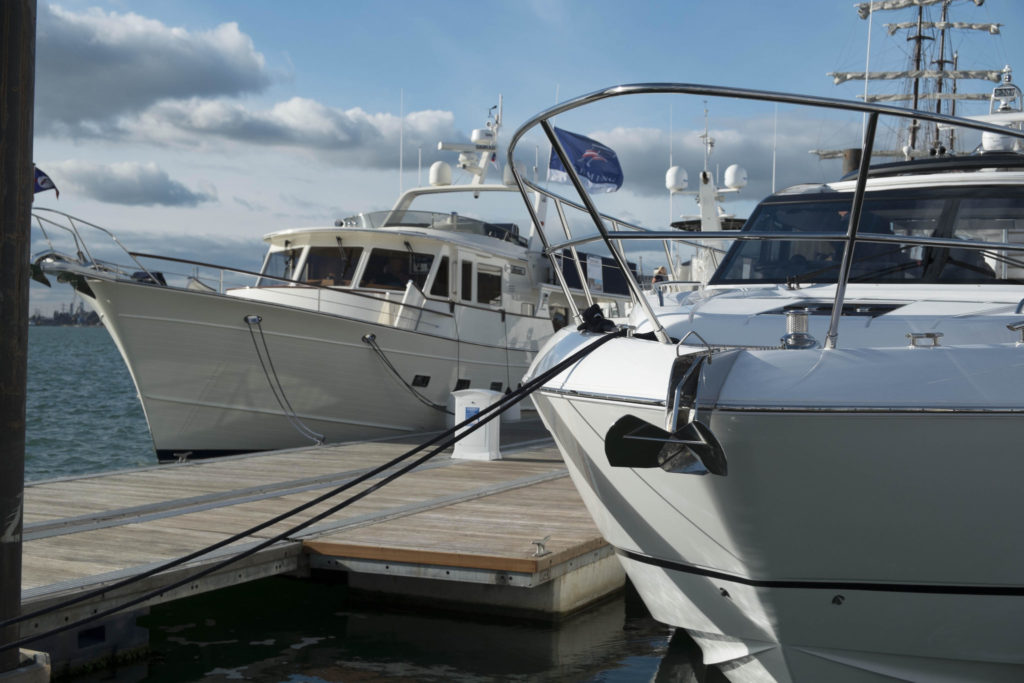Stoneways Marine’s team share their expert tips on the best ways to avoid a boat grounding, and the best actions to take if your boat sustains unfortunate damage:
Boat damage is unfortunately one of the main reasons every sailor should have a watertight marine insurance policy, and that includes the rare event of a grounding, which can be catastrophic. It doesn’t matter how much experience you have – sometimes, even world class sailors get it wrong.
Perhaps most famously, in 2014 the Volvo Ocean Race competitor ‘Team Vestas Wind’ grounded on a reef off the Cargados Carajos Shoals 200nm from Mauritius in the Southern Indian Ocean at a speed of almost 20kts.
Advanced technology let the team down on this occasion – these shoals and islets are shown on all paper charts of the area, but not on the high level zooms of the electronic navigation system used onboard the vessel. Their navigator had checked the information on several occasions and was satisfied that there was no danger. As a result, the Team Vestas Wind had no choice but to abandon the vessel after running aground and becoming subsequently stranded.
Buoyage, is not always wholly accurate, take your own precautions in shallow water.
The lesson seems obvious; even if like so many sailors your minute to minute navigation is done on the chart potter, make sure to check the paper chart for the entire passage before you set out. If the plan changes, check again – leave nothing to chance.
Even highly experienced sailors hit uncharted and charted obstructions occasionally. Remember, even at the leisure level, there is still a legal requirement to have a passage plan for even the shortest of journeys.
Stoneways Marine’s team share their expert guidance on the best ways to avoid a boat grounding, and how to respond in the unfortunate event of one:
- To avoid incidents like running aground, make sure that all charts (whether they are electronic or paper) are up to date and ensure you have checked the relevant Notices to Mariners beforehand.
- Most importantly of all, keep a good lookout and a close eye on the depth sounder. Ensure you have the shallow alarm set, and make sure everyone is aware of how the depth sounder is calibrated.
- Take extra vigilance at night and especially in unfamiliar waters.
- Do not blindly follow a boat ahead.
- Don’t take unnecessary risks if racing a sailing boat.
- Sandbars, banks, and other obstructions are often moving and changing. Do not solely rely on previous knowledge or experiences.
- Buoyage, in some parts of the world is not always wholly accurate, take your own precautions in shallow water. And don’t forget to regularly refresh your knowledge of what all the different marks mean.
- Maintain a safe speed, this will allow you enough time to take necessary action if you do spot an underwater hazard that needs to be avoided.
- If an incident should occur, record as much information as possible, as soon as is possible. Photographs are often very helpful.
- Whilst catastrophic grounding claims are mercifully rare, it is important to get your boat checked over by a professional if you do run aground. Damage can often be hard to see, especially without taking the boat out of the water.
- Please report to us as soon as you can, even if you are unsure that a claim may result, which will protect your interests.
- Take immediate action to safeguard and minimise further loss.
Nobody likes nasty surprises when they’re out on the water and Stoneways’ experienced team is here to help from start to finish. We understand that all accidents can be distressing situations which is why we aim to make the UK marine insurance claim process as quick and professional as possible for our customers.
If you’re looking for further marine insurance guidance, get in touch with our experienced team today via phoning 03333 609 886. Visit our Claims Guidance page for further tips: stoneways.co.uk/claims-guidance.

